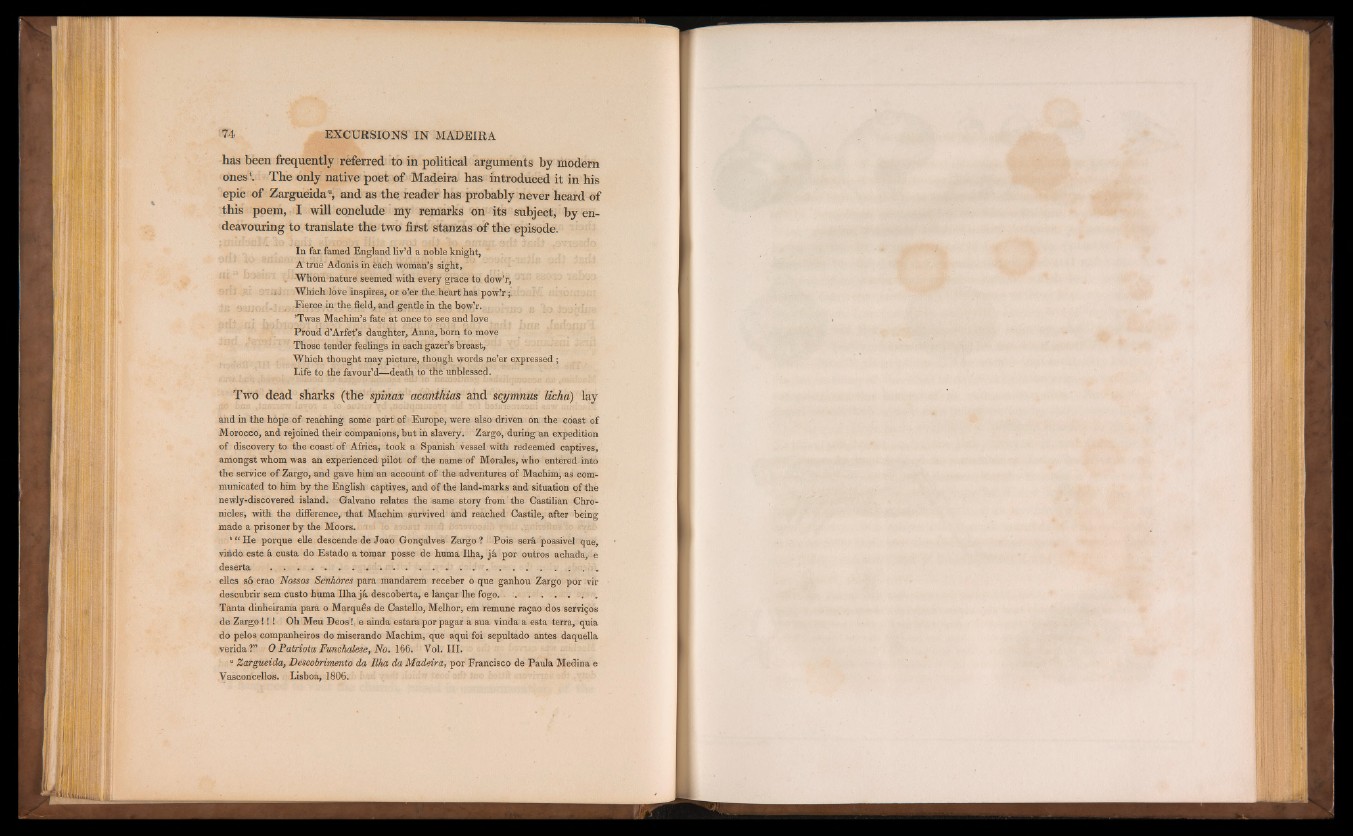
has been frequently referred to in political arguments by modern
ones*. The only native poet of Madeira has introduced it in his
epic of Zargueida", and as the reader has probably never heard of
this poem, I will conclude my remarks on its subject, by endeavouring
to translate the two first stanzas of the episode.
In far famed England liv’d a noble knight,
A tfiiè'Adonis in each woman’s sight,
. Whom nature seemed with every grace to dow’r, H
- iili Which love inspires, or o’er the heart has pow’r ;
Fierce in the field, and gentle in the bow’r.
’Twas Machim’s fate at once to see and loye,
Proud d’Arfet’s daughter, Anna, born to move
Those tender feelings in each gazer’s breast,
Which thought may picture, though words ne’er expressed ;
Life to the favour’d—-death to the unblessed.
Two dead sharks (the spinax ctcantkias and scymnus licha) lay
and in the hope of reaching some part of Europe, were also driven on the coast of
Morocco, and rejoined their companions, but in slavery. Zargo, during an expedition
of discovery to the coast of Africa, took a Spanish vessel with redeemed captives,
amongst whom was an experienced pilot of the name of Morales, who entered into
the service of Zargo, and gave him an account of the adventures of Machim, as communicated
to him by the English captives, and of the land-marks and situation of the
newly-discovered island. Galvano relates the same story from the Castilian Chronicles,
with the difference, that Machim survived and reached Castile, after being
made a prisoner by the Moors.. Ssh o ^ ;
* ff He porque elle descende de Joao Gonçalves Zargo ? Pois serâ possivel que,
vindo este â custa do Estado atomar posse de huma Ilha, jâ por outros achada, e
deserta . . . . . . . . . . . . . . . . . . . . . . . . .
elles sô erao Nossos Senhores para mandarem receber o que ganhou Zargo pôr vir
descubrir sem custo huma Ilha jâ descoberta, e lançar lhe fogo. . . . . . . .
Tanta dinheirama para o Marqués de Castello, Melhor, em remime raçao dos serviços
de Zargo ! ! 1 Oh Meu Deos!. e ainda estara por pagar a sua vinda a esta terra, quia
do pelos companheiros do miserando Machim, que aqui foi sepultado antes daquëlla
verida ?” O Patriota FunchcUese, No. 166. Vol. III.
u Zargueida, Descobrimento da Ilha da Madeira, por Francisco de Paula Medina e
Vasconcellos. Lisboa, 1806.